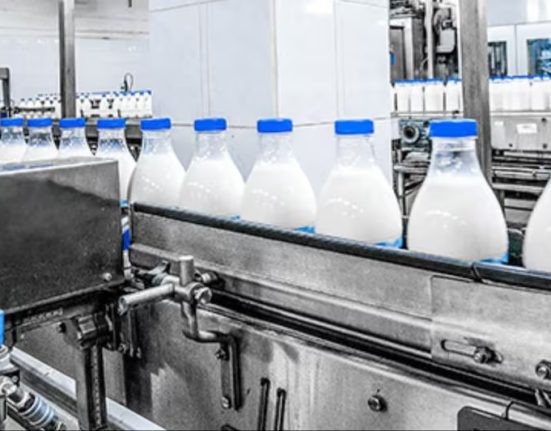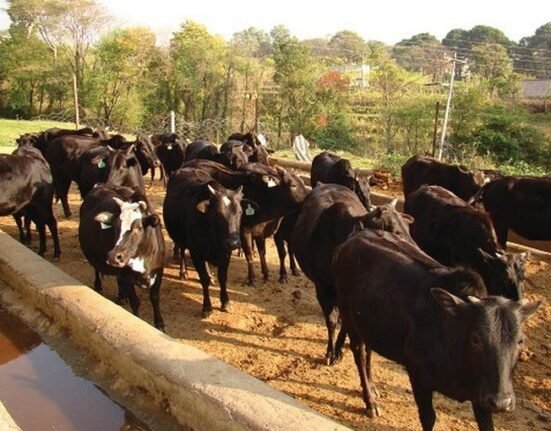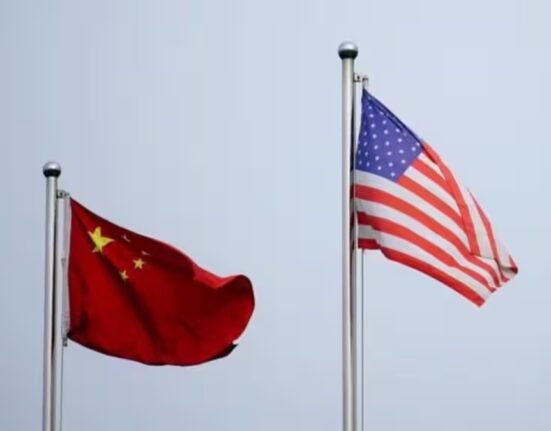U.S. Dairy Market Faces Price Volatility, Regulatory Challenges, and Labor Shortages
The U.S. dairy industry is struggling with increasing challenges, particularly volatile cheddar pricing, federal regulatory changes, and labor shortages. Peter Hardin, a seasoned dairy market expert, recently addressed dairy farmers in Wisconsin, emphasizing the critical role of cheddar pricing in the state’s economy. Wisconsin processes nearly 90% of its milk into cheese, making it highly dependent on stable pricing.
Market uncertainty is exacerbated by unpredictable supply-and-demand fundamentals, which Hardin claims are being ignored. Furthermore, labor shortages have made it difficult for dairy operations to maintain efficiency, with many farms unable to find skilled workers to manage herd sizes and milk production. Meanwhile, new federal regulations on milk production standards and environmental compliance are adding another layer of complexity for dairy businesses. Farmers are urging policymakers to introduce measures that stabilize milk prices and provide support for sustainable dairy farming practices.
Arla Maintains January 2025 Milk Prices for UK Farmers
Danish dairy cooperative Arla has announced that its milk prices for January 2025 will remain unchanged for British farmer suppliers. This decision comes amidst a fluctuating market environment.
For January, Arla will pay 48.54 pence per litre (ppl) for conventional milk and 58.53 ppl for organic milk. The cooperative noted that global milk supply has seen a slight increase, and retail sales continue to grow, though at a slow pace. However, commodity markets are weakening following the seasonal peak during the Christmas holidays.
Arla has cautioned that while retail dairy demand remains stable, the overall market outlook for the year appears uncertain. The cooperative expects moderate price adjustments in the coming months, depending on consumer demand trends and international trade developments.
UK Scientists Experiment with IVF Breeding to Reduce Dairy Methane Emissions
In a groundbreaking initiative, UK researchers are developing in vitro fertilization (IVF) breeding techniques to reduce methane emissions from dairy cattle. This project, part of broader sustainability efforts in the dairy industry, focuses on selective breeding to enhance traits that lead to lower methane production.
The strategy involves using advanced genetic selection methods to breed cows that naturally produce less methane during digestion. This could significantly reduce the dairy sector’s environmental impact. While the initiative has received support from climate-conscious organizations, some critics argue that genetic modification may raise ethical concerns and unintended consequences.
U.S. Dairy Industry Turns to Biogas as a Sustainability Measure
More large-scale dairy farms in the United States are investing in biodigesters, which convert cow manure into biogas. This process helps reduce methane emissions and provides dairy farms with an additional revenue stream by selling renewable energy.
However, critics argue that these biodigesters may serve as a form of greenwashing for industrial dairy operations. They claim that while the technology reduces methane emissions, it does not address the broader sustainability issues associated with intensive dairy farming. Opponents suggest that promoting pasture-based dairy farming and regenerative agricultural practices would be more effective in the long term.
China’s Dairy Industry Faces Persistent Oversupply Challenges
China’s agriculture ministry has projected that the country’s milk oversupply issue will continue into the first half of 2025. This situation has resulted from slowing consumer demand, driven by economic constraints and changing dietary habits.
With a declining birth rate and an increasingly cost-conscious consumer base, dairy consumption in China has seen a slowdown, forcing smaller dairy farmers out of business. In response, the government has advised dairy producers to adjust herd sizes by culling older cows. While production levels have stabilized, oversupply issues are expected to persist until mid-2025.
Australian Dairy Farmers Acquire Largest Farm at Woolnorth
Experienced dairy farmers Harper and Oonagh Kilpatrick have made a significant acquisition by purchasing a 717-hectare dairy farm at Woolnorth from Van Dairy. This sale marks the largest land deal at the historic property, which had been on the market since April 2024.
The Kilpatricks, who previously managed a large dairy farm in Victoria, see this acquisition as an opportunity to expand their operations. Meanwhile, Van Dairy continues to seek buyers for its remaining 9,000 hectares of land, which includes seven rotary dairies and key infrastructure assets.
UK Doorstep Milk Deliveries Make a Comeback Amid Eco-Friendly Trends
Milk &More, a traditional doorstep milk delivery company in the UK, is experiencing a resurgence in demand. The business, which has been around for over a century, is witnessing a rise in eco-conscious consumers who prefer milk in reusable glass bottles rather than plastic packaging.Indian News
The company is signing up over 1,000 new customers every week and plans to expand delivery services to additional regions, including London, West Sussex, Kent, Derbyshire, Hertfordshire, and the West Midlands. The shift towards sustainable packaging solutions is expected to drive continued growth in doorstep milk delivery services.







